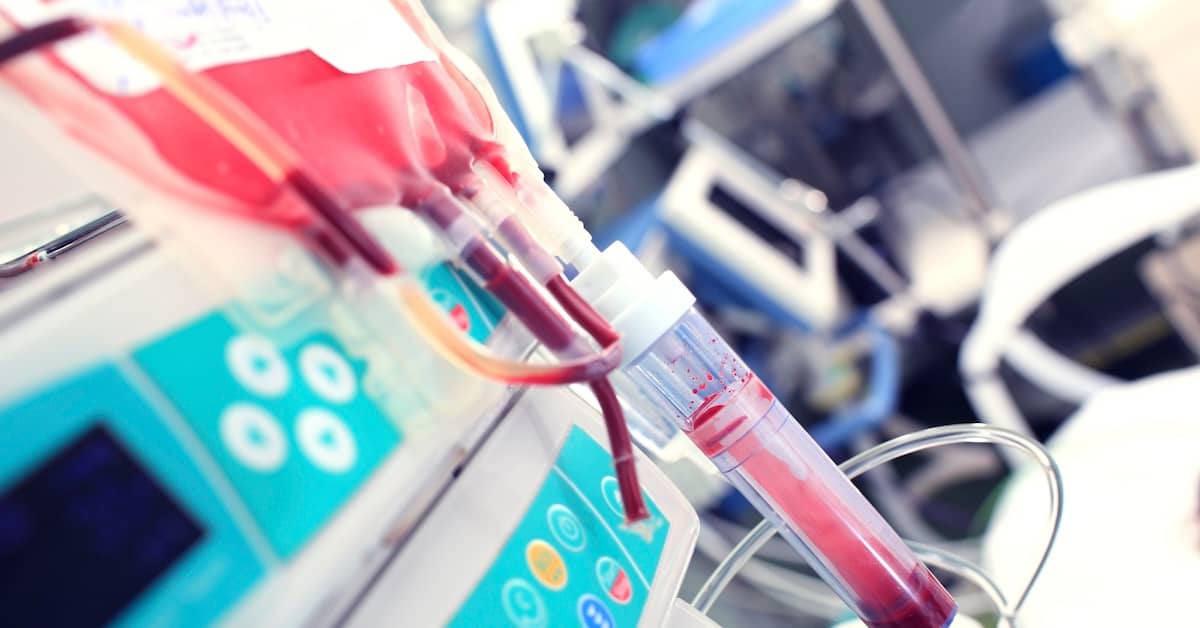
34-year-old Jesse Karmazin is hoping to open a clinic in New York City this year offering to reverse the aging process by infusing people with the blood of young donors – ranging in age from the teens to 25.
He said a single infusion "dramatically improves people's appearance, their memory and their strength [and] reverses aging." He even had the temerity to say "it comes pretty close" to immortality.
Do any of these extraordinary claims have merit? Let's see. . .
Seems to Work for Mice
Dr. Karmazin is a graduate of Stanford Medical School. He’s controversial, and way ahead of the proven science on this subject.All the same, serious research is underway on the anti-aging benefits of young blood. And a group at his alma mater, Stanford, is leading the field.
In a study published in 2014, old mice that had undergone a number of blood transfusions from young rodents showed increased brain cell growth and better memories.1 A later study demonstrated the brains of old mice could be rejuvenated with plasma from human umbilical cord.2 Some remarkable results have been achieved where an old mouse's circulatory system is physically joined to that of a young mouse so they share the same blood. The process is called parabiosis. The procedure brings new life to virtually all of the old mouse's organs. The animals appear stronger, smarter and healthier.3 In their own study, investigators from Harvard found greater vasculature (blood vessels) in the hippocampus - a key area of the brain for memory and learning - and increased neurogenesis (new brain cell growth) in aging mice from factors found in young blood.4 Studies are consistent in showing old mice benefit from the transfusions. They develop a greater number of stem cells, neurons, stronger connections between neurons, and improved memory.
Anti-aging researchers are naturally excited by these findings, but the big question is whether it has any application to humans. Several studies are underway to find out.
Early Human Trials
For these trials, the researchers don’t use whole blood. They’re transfusing the plasma portion of the young donor’s blood. This is a yellow liquid that makes up about 55% of the total blood volume. It’s the medium that carries the blood cells, nutrients, waste products, clotting factors, antibodies and hormones.Dian Ginsberg, M.D. and Medical Director of Women’s Specialty Healthcare in Bellaire, Texas, is Board Certified in Anti-Aging and Regenerative Medicine. She is leading a team conducting a randomized, double-blind, placebo-controlled trial involving volunteers with Parkinson's disease or multiple sclerosis. They were matched with young donors (18 to 25 years of age) by blood type and gender.
One month's results were presented in December, 2018 following two liters of plasma infused over three days in 34 of 40 patients. The researchers reported positive changes in blood biomarkers and life quality. Not too much to shout about so far, but we'll know more in July when they expect to publish a final assessment.5 The Stanford group carried out a study of 18 patients with mild to moderate Alzheimer's over three to six months. Multiple cognitive tests showed no significant changes, but there were some improvements in the patients’ functional ability, such as remembering to take their prescribed medications, paying household bills and preparing meals.6 Another Stanford trial on 15 Parkinson's patients over four weeks has just finished and we should hear the results later this year.7 The benefits seen in human studies so far are underwhelming, but these studies have been small and short-term, being mainly concerned with the safety of the procedure. Bigger and longer studies are in the pipeline.
The data to support Jesse Karmazin's claims are nowhere to be seen, but he did carry out his own study. . .
Volunteers Pay to Enroll
Dr. Karmazin -- who has a medical degree but is not licensed to practice medicine -- formed a start-up company called Ambrosia to carry out a clinical trial on people aged 35 or over.A comprehensive range of aging and disease biomarkers were analyzed, but there was no placebo group, and the 104 participants had to pay $8000 for the privilege of taking part.
(I don’t find that shocking. The alternative would be to try to find grant money to fund the study.)
The trial was completed in January, 2018 but the results have not yet been peer reviewed or published, so we’ll have to wait to see if they back up Dr. Karmazin’s claims.
Human research is still at an early stage, so it will probably take several more years before this procedure can be properly assessed.
Since there may be many proteins, enzymes, growth factors and other molecules in young plasma that increase or decrease with aging, it's likely that scientists will be able to identify specific factors of value, and these may form the basis of new treatments.
Some of these are already being actively investigated and are more likely than whole plasma transfusions to lead to targeted anti-aging therapies in the future.
- https://www.nature.com/articles/nm.3569
- https://www.ncbi.nlm.nih.gov/pubmed/28424512
- https://www.nature.com/news/ageing-research-blood-to-blood-1.16762
- https://www.ncbi.nlm.nih.gov/pubmed/24797482
- https://docs.wixstatic.com/ugd/3e0a14_3e2332bc2bf444d5844f4580a0c8d136.pdf
- https://stanmed.stanford.edu/2018winter/clinical-trial-finds-blood-plasma-from-young-donors-promising-for-Alzheimers.html
- https://clinicaltrials.gov/ct2/show/NCT02968433
